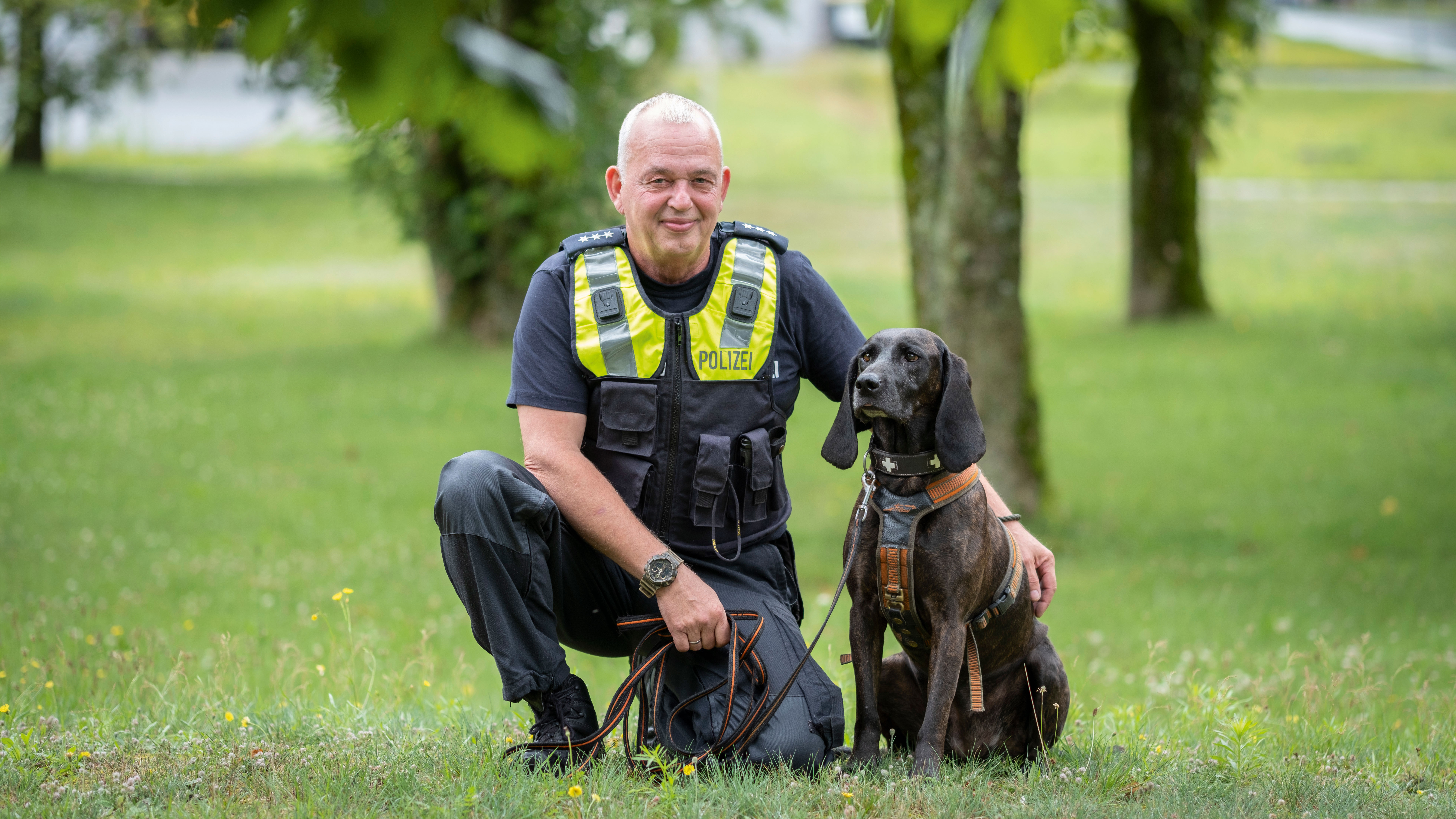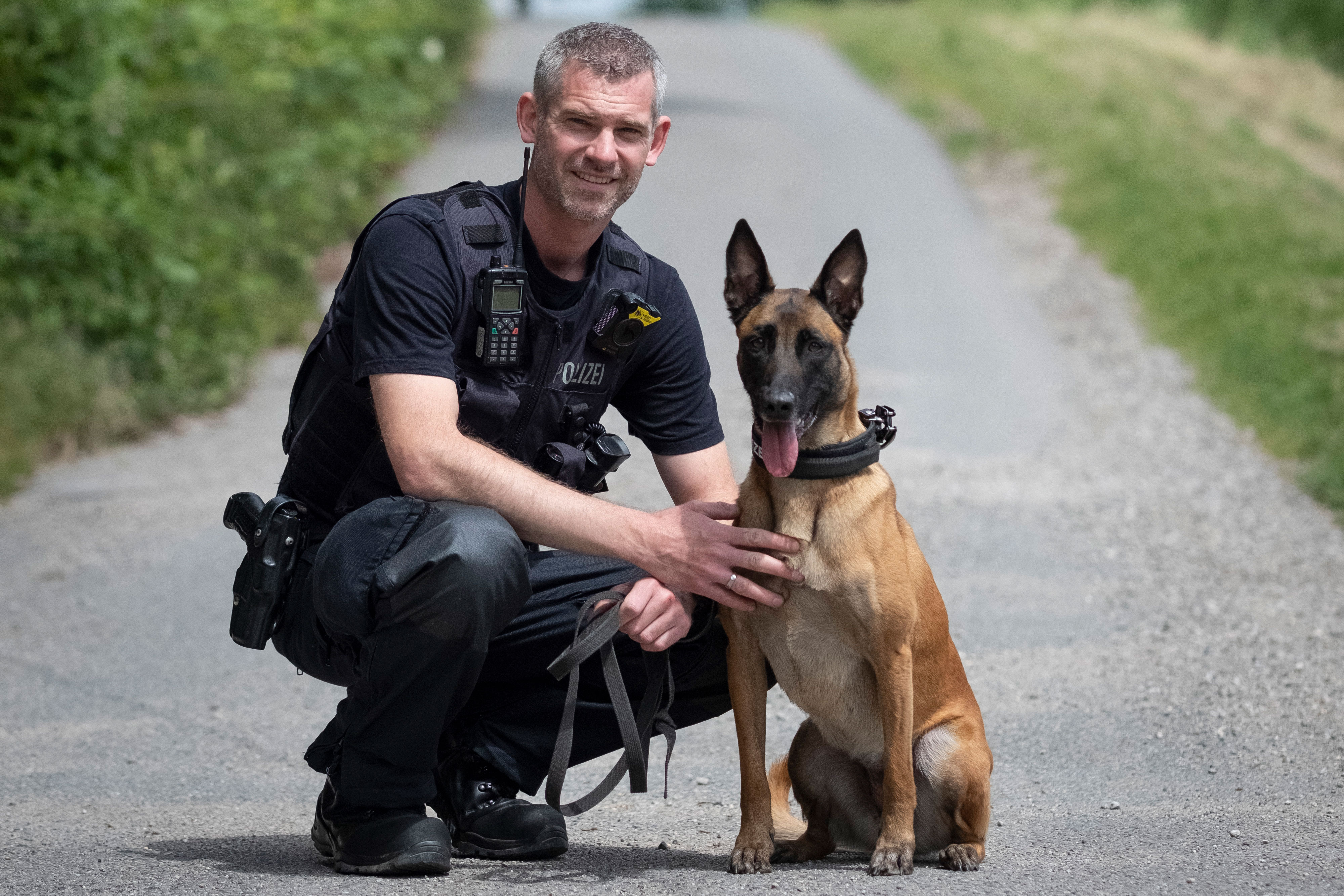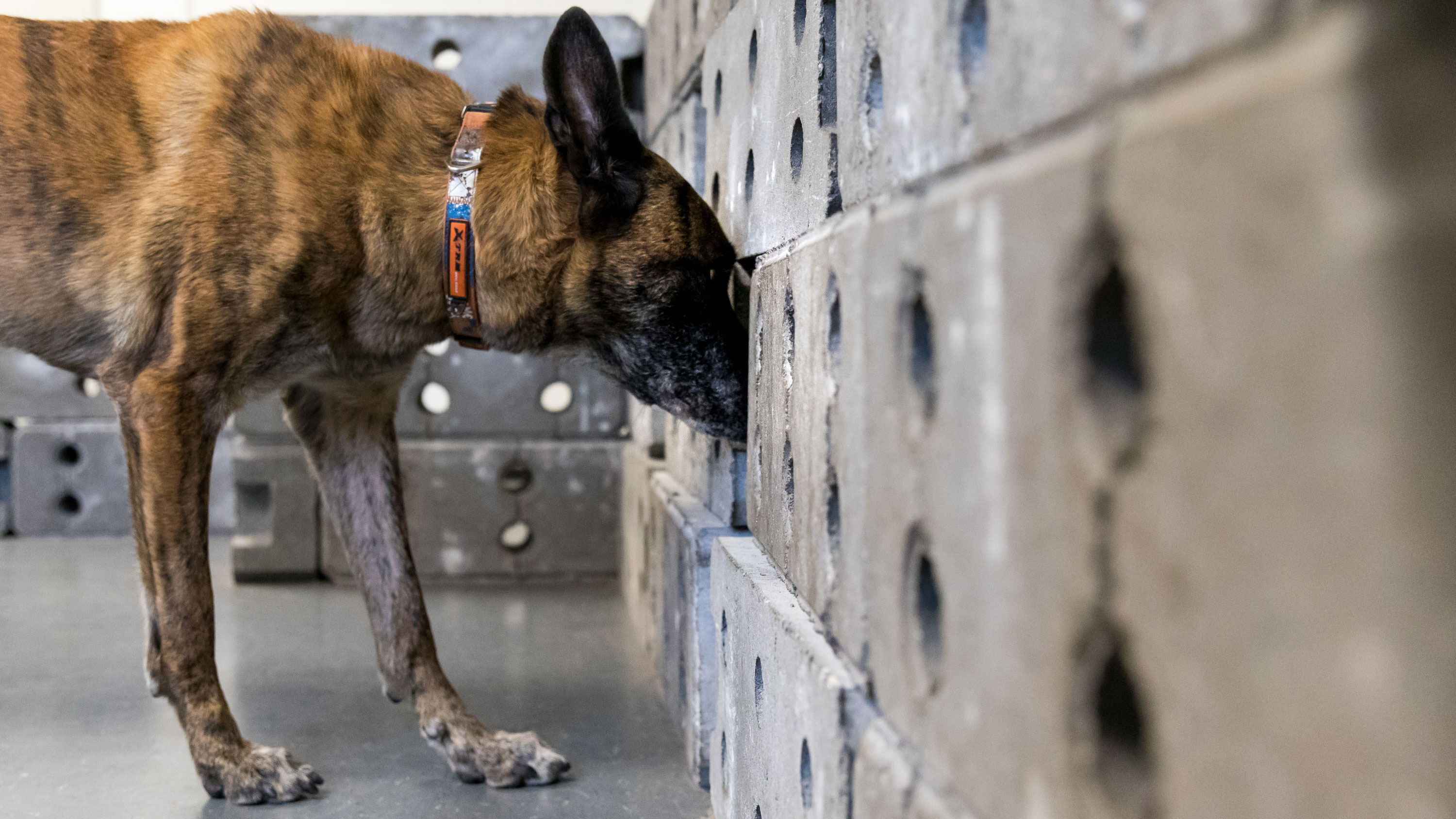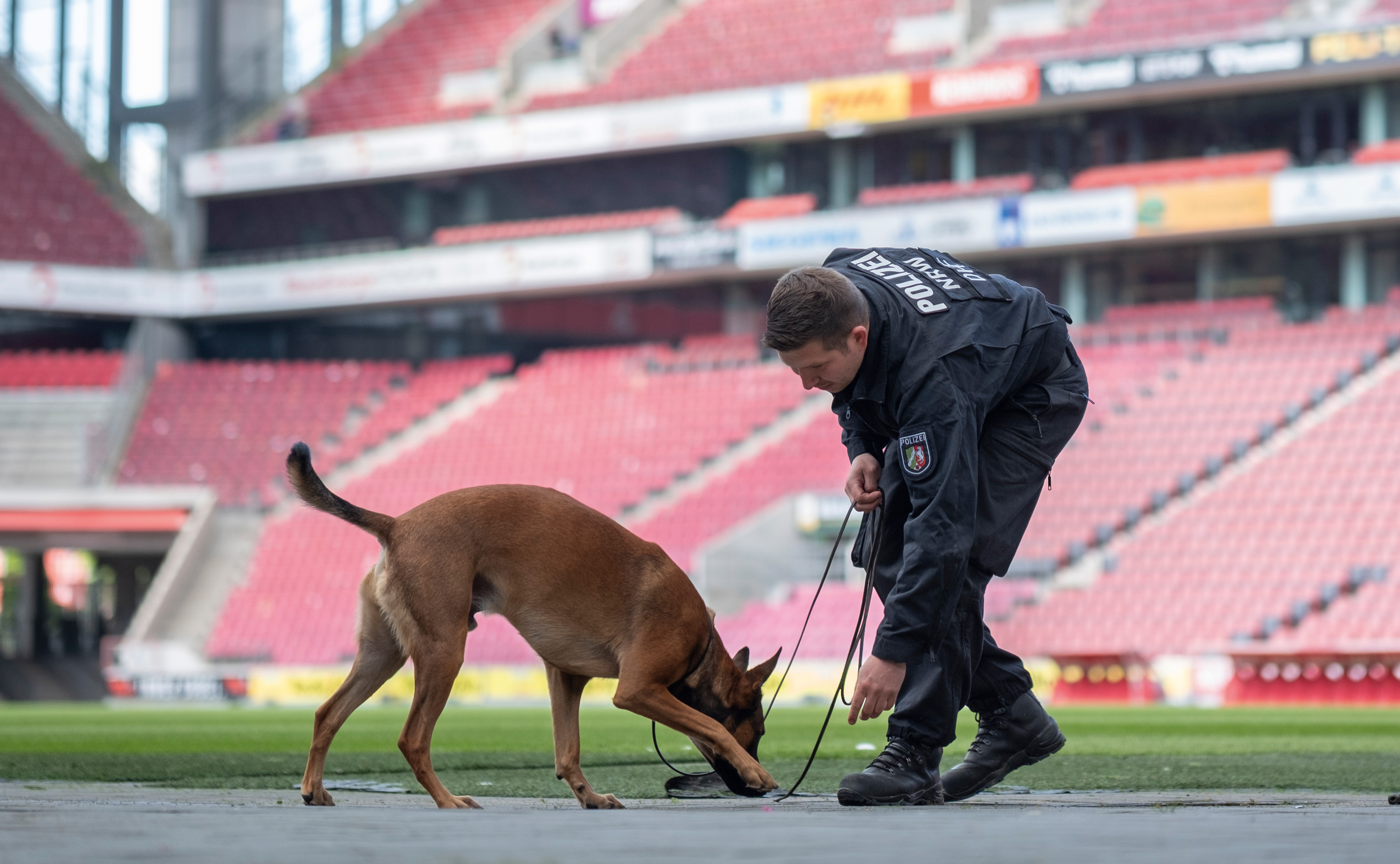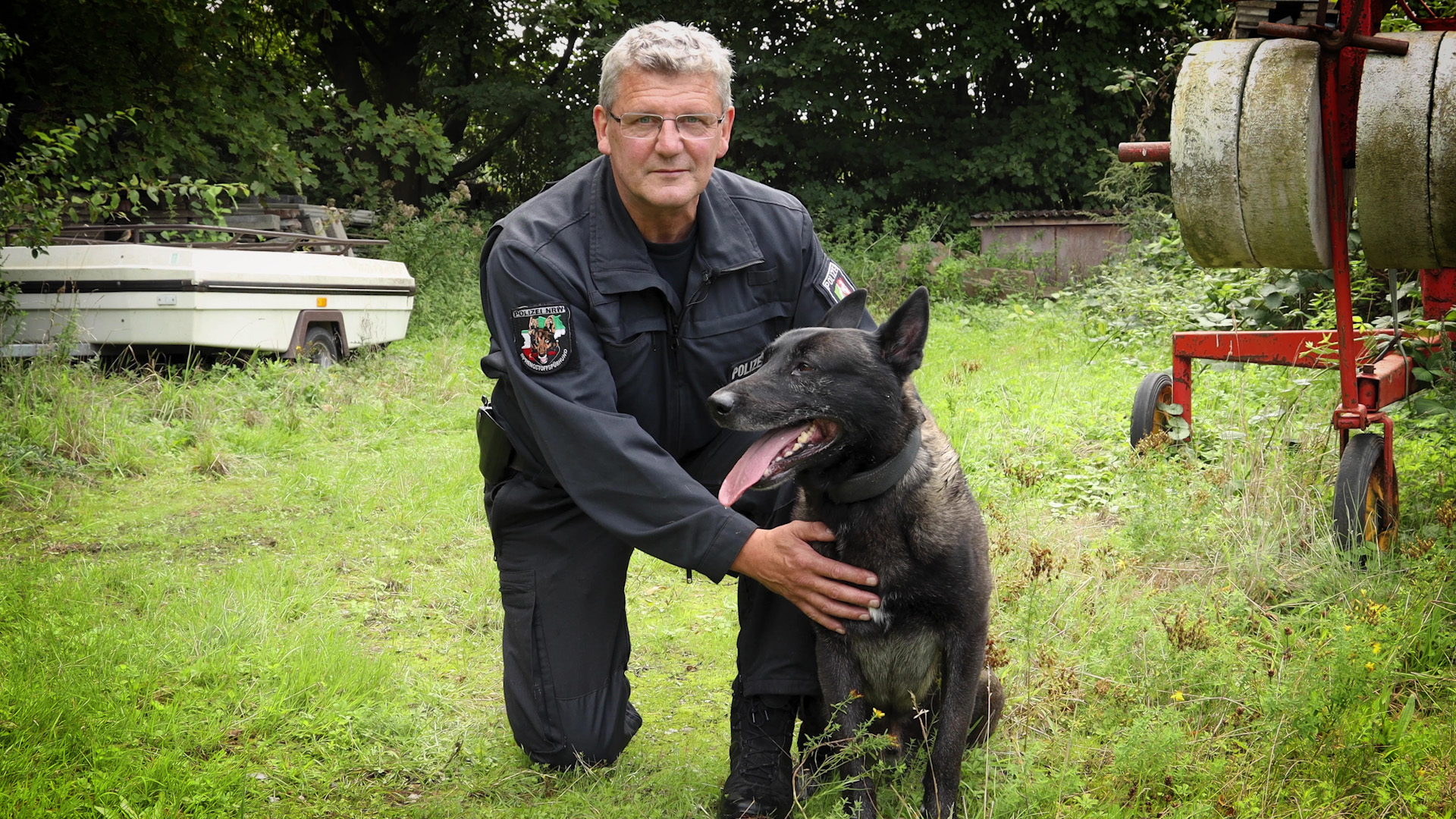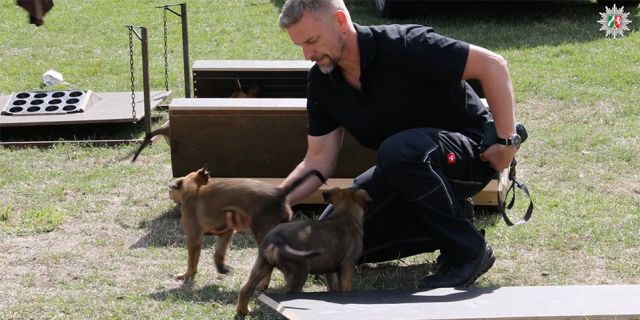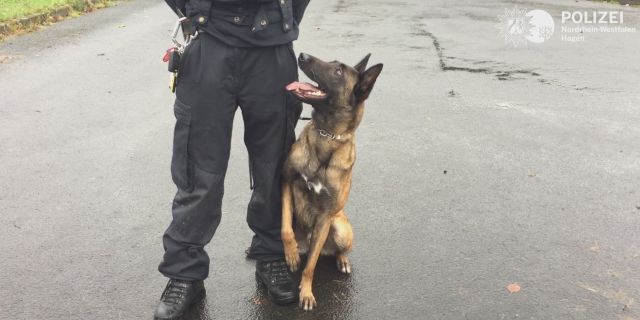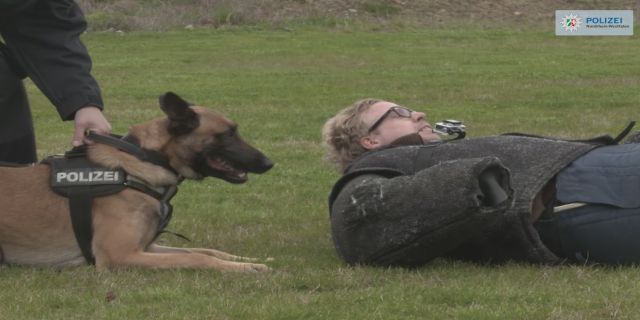Claudia Vogel, LAFP NRW
The service dogs of the NRW police are a versatile resource and provide valuable support in a wide range of operational situations. A total of 305 dogs currently work in the police authorities in NRW.
But how do you actually become a service dog with the North Rhine-Westphalian police? Since 1988, the NRW police have been breeding service dogs of the Malinois breed, which belongs to the Belgian Shepherd Dogs, at the NRW State Office for Training, Further Education and Personnel Affairs (LAFP) in Schloß Holte-Stukenbrock. Other breeds such as German Shepherds, Herders (Hollandse Herdershond), Rottweilers, Giant Schnauzers or mixed breeds can also be purchased. With the help of the service dog handlers, the service dogs are then initially prepared for their deployment as guard dogs. After their initial certification for service dog use, suitable dogs can also receive further training as sniffer dogs and also be used to search for narcotics, explosives, used firearms, cash, data storage devices and people. Every 24 months, the four-legged friends must undergo a certification to prove that they are fit for use as service dogs and sniffer dogs. Exceptions are explosives detection dogs, which must provide renewed proof of their super nose every 15 months at the latest.
Sniffing out people, preventing violence
The service dogs of the district police authorities are used in particular in day-to-day police work. They make a significant contribution to the success of operations, for example by tracking down hidden persons during searches of apartments, buildings or areas, apprehending suspects or preventing attacks on deployed police officers in the event of violent crimes. The animals can also often have a preventative effect and prevent violence in the event of larger riots or violent groups simply by their presence. In addition, the dog handlers and their service dogs are deployed together with riot police forces on special occasions, for example at soccer matches. They separate or accompany troublemakers, close off sections and prevent violent attacks on police officers.
The special nose
The LAFP NRW also has specially trained cadaver detection dogs, arson detection dogs and mantrailer service dogs available centrally in Schloß Holte-Stukenbrock for special operations throughout NRW. It is also not uncommon for the sniffer dogs to be deployed in other federal states. Cadaver, arson and personal detection dogs have extraordinary skills.
- After homicides or accidents, cadaver sniffer dogs provide valuable assistance in investigations. They are able to detect the smell of corpses and blood as well as tools contaminated with blood even weeks after the crime - even if the perpetrator has tried to remove traces. They can even detect the smell of corpses on water surfaces from a boat. Another area of application is the search for helpless, living persons in the terrain. Their use is particularly helpful in densely overgrown and unclear sections of terrain.
- A large number of deliberate arsons involve the use of fluid accelerants. It is usually extremely difficult to find these substances at the scene of the crime, as technical equipment can only be used selectively to locate unburned residues of fire accelerants. The use of sniffer dogs, on the other hand, makes it possible to search the entire area of the fire. Fire agent detection dogs are trained on all relevant fire accelerants. The concrete evidence and forensic proof was then provided by supplementary laboratory tests of the secured samples.
- The performance profile of mantrailing service dogs includes detecting and following the trail of a missing or wanted person based on their individual scent - possibly even after several days over a distance of several kilometers. Due to their special olfactory ability, these super noses are able to detect the individual scent of a single person and distinguish it from other scents after very intensive training. According to the current state of knowledge, the dogs are mainly guided by shed human cell particles that are released into the environment through the skin, breath or excrement and converted into gases by bacteria. Scent traces can also be transferred to objects in the event of direct contact. The mantrailer dogs are conditioned to follow the scent of a particular person from old to fresh, thus running after a person. The mantrailers make their selection from a large number of human scents in the environment by smelling an object with the scent of the person they are looking for, a so-called reference object, immediately before starting their tracking work.
Life with the service dog
The service dog usually lives with its handler. It can be kept in a kennel in the immediate vicinity of the home, but also in the home. Appropriate vehicles are available for the safe transportation of the animals while on duty. These are procured centrally by the NRW State Office for Central Police Services (LZPD). The plan is to gradually replace the fleet and equip the authorities with minibuses and matching double or triple boxes for transporting the dogs in the long term.
